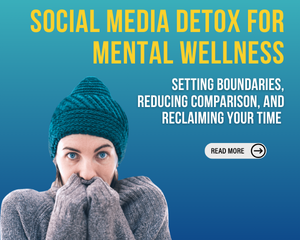Building a Support System in High School: Friends, Family, Counselors, and Knowing Where to Turn for Help

High school is a time of growth, change, and challenges. It’s a time when having a strong support system can make all the difference. You don’t have to navigate the ups and downs of high school alone. This article will guide you on building a solid support system with friends, family, counselors, and other valuable resources.

Why a Support System Matters in High School
A support system is your safety net, your cheering squad, and your source of strength during your high school journey.
- Emotional Well-being: A support system provides a sense of belonging, reduces feelings of loneliness, and helps you manage stress, anxiety, and depression.
- Resilience: Having people to lean on builds resilience, helping you bounce back from setbacks, cope with challenges, and develop a growth mindset.
- Guidance and Advice: Your support network can offer valuable advice, different perspectives, and help you make informed decisions about academics, college, and your future. Need extra guidance? Platforms like Cirkled In help connect students with opportunities to grow and plan ahead.
- Accountability and Motivation: Supportive friends and family can encourage you to stay on track with your goals, hold you accountable, and motivate you to achieve your full potential.
- Celebration and Joy: A support system enhances your positive experiences, allowing you to share your successes, celebrate milestones, and enjoy the journey with others.
Friends: Your Peer Powerhouse
Friends are an essential part of your support system, offering unique understanding and camaraderie.
- Choose Wisely: Surround yourself with friends who are positive, supportive, and share your values. Prioritize quality over quantity.
- Be a Good Friend: Support your friends, listen actively, and be there for them during their challenges. Healthy friendships are a two-way street.
- Communicate Openly: Share your feelings, thoughts, and experiences with your friends. Open communication builds trust and deepens connections.
- Resolve Conflicts Healthily: Learn to address disagreements constructively and respectfully. Healthy conflict resolution strengthens friendships.
- Expand Your Circle: Don’t limit yourself to one group of friends. Be open to meeting new people and building connections with diverse individuals.
Family: Your Home Base of Support
Your family can be a strong source of support, providing unconditional love and guidance.
- Open Communication: Talk to your family about your experiences, challenges, and feelings. Create a safe space for open and honest conversations.
- Set Boundaries: Establish healthy boundaries with your family members. Communicate your needs and expectations clearly and respectfully.
- Seek Advice and Support: Don’t hesitate to ask your family for advice, help, or a listening ear. They often have valuable wisdom and insights to offer.
- Appreciate Their Support: Show your family that you appreciate their love, support, and guidance. Express your gratitude regularly.
- Address Conflicts Constructively: If conflicts arise, address them calmly and respectfully. Focus on finding solutions and maintaining healthy relationships.
School Counselors: Your In-School Advocates
School counselors are valuable resources for academic, personal, and emotional support.
- Academic Guidance: Counselors can help you with course selection, college planning, and career exploration.
- Personal Support: Counselors provide a safe space to discuss personal challenges, stress, anxiety, or other mental health concerns.
- Conflict Resolution: Counselors can help mediate conflicts with peers, teachers, or family members.
- Resource Referrals: Counselors can connect you with additional support services and resources within the school or community.
- Advocacy: Counselors can advocate for your needs and help you navigate the school system.
Beyond School Walls: Expanding Your Support Network
Your support system doesn’t have to be limited to friends, family, and counselors.
- Mentors: Seek out mentors in your areas of interest. Mentors can provide guidance, advice, and support based on their experiences.
- Teachers and Coaches: Build positive relationships with teachers and coaches. They can offer support, encouragement, and valuable insights.
- Community Groups: Get involved in community groups, clubs, or organizations that align with your interests. These groups can provide a sense of belonging and shared purpose.
- Online Support Communities: Utilize online platforms and communities for support, but be sure to prioritize safe and moderated spaces. Platforms like Cirkled In can also help you connect with opportunities and showcase your achievements.
- Mental Health Professionals: If you are struggling with significant mental health challenges, seek help from a therapist or counselor.
Action Step
Reflect on your current support system. Identify areas where you can strengthen your connections or expand your network. Reach out to friends, family, counselors, or other resources for support. Explore Cirkled In’s wellness resources for additional guidance and connection.
Final Thought: Build Your Tribe: How to Create a Strong High School Support System
Building a strong support system is an investment in your well-being, resilience, and success. Don’t hesitate to reach out, connect, and build your tribe. You don’t have to go through high school alone.
Want more college admissions tips? Check out Cirkled In Library for expert advice and tools to help you build a winning college application and land a spot at your dream school!



0 Comments